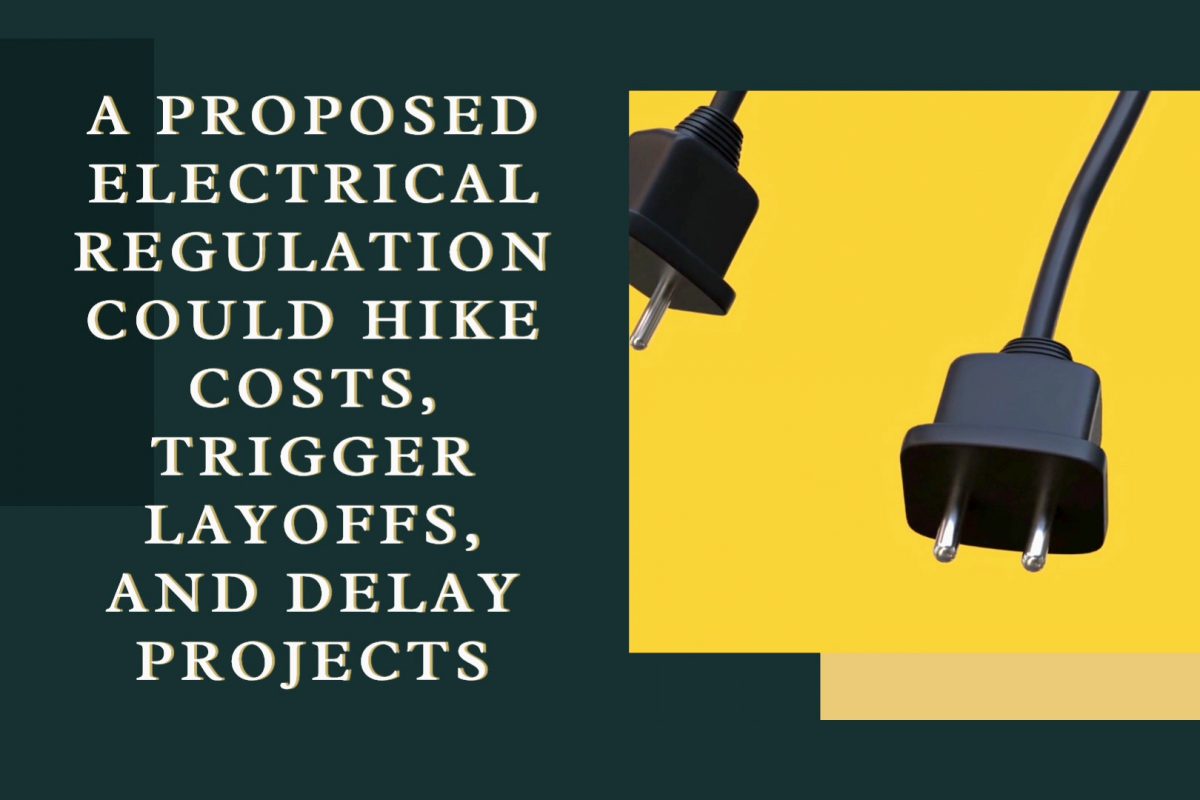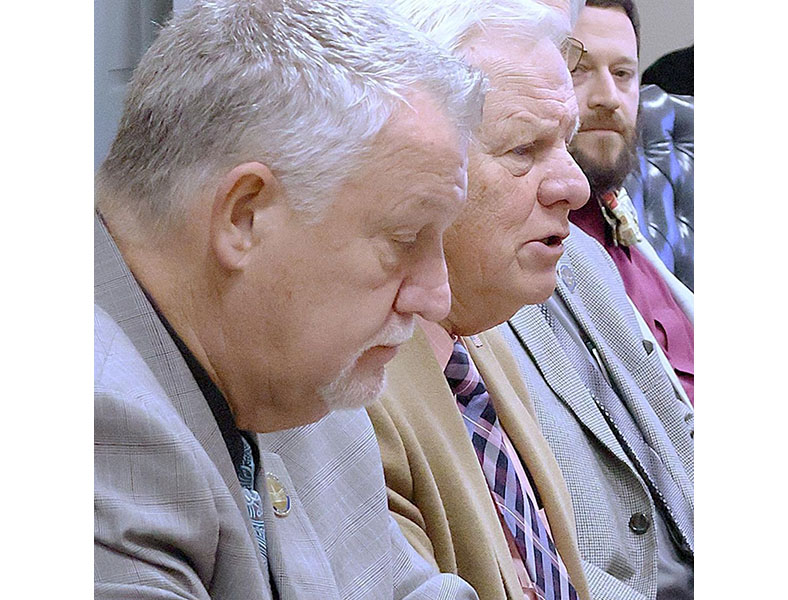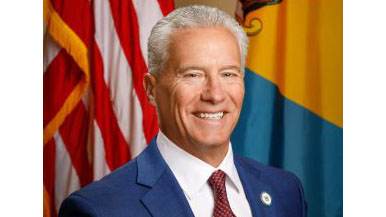For Immediate Release: Tuesday, August 26, 2026
For More Information: Joe Fulgham, 302-744-4184
A controversial pending state regulation could threaten hundreds of jobs and lead to significant delays and increased costs for thousands of Delaware homeowners and businesses.
The proposed rule, recently published in the state’s Register of Regulations*, would require any contractor installing a low-voltage system to have the work performed by a licensed electrician.
Low-voltage wiring—typically under 50 volts—is used in a wide range of applications, including telephone systems, sound systems, cable television, closed-circuit video systems, satellite dish antennas, instrumentation and temperature controls, landscape lighting, networking, communication systems, and security systems.**
Under current Delaware regulations, low-voltage system installations are specifically exempt from requiring a licensed electrician. The proposed change would eliminate that exclusion.
Low-voltage systems are also low-amperage, a combination that creates little to no risk of shock or fire. While some states require special licensing or certification for low-voltage technicians, many, like Delaware, do not.
Charles Williams, owner of Creation Audio, emphasized that all of his company’s work, from audio systems to networking and Wi-Fi, falls under the low-voltage category.
“It’s a solution to a problem that does not exist,” he said, adding that their work is more akin to handling data than distributing power.
“Most companies that do what we do have four or five people on staff,” Mr. Williams said. “If this change were to take effect, I would be completely unable to do everything I do day-to-day. In practice, we’d cease to exist.”
Mr. Williams also noted the broader impact the regulation could have. “Theoretically, Mediacom (cable TV) would not be able to run a cable from the pole to the house. That’s low voltage. HVAC companies wouldn’t be able to run a wire for a thermostat. That’s low voltage, too.
“There is no justification for this,” he continued. “I’m really curious as to the ‘why’ behind this, because nobody has given us an answer,” he said.
According to the public notice posted with the proposed change, the low-voltage work that was “previously exempted from licensure is now included within the National Electrical Code. Thus, individuals performing the work described in the existing subsection must be licensed and are no longer eligible to be exempt.”
However, critics note that the National Electrical Code (NEC) is not federal law, but rather a model code developed by the private organization, the National Fire Protection Association. States and local jurisdictions have significant discretion in adopting, modifying, and enforcing these standards. In fact, it is this flexibility that creates a patchwork of electrical codes across the country, where neighboring jurisdictions, including municipalities in the same state, may operate under different versions of the code.
This is not the first time Delaware regulators have attempted to grant licensed electricians exclusive responsibility over low-voltage systems. According to Kevin Short, owner and general manager of Mid South Audio, a similar effort was made in the late 1990s. After strong opposition was expressed at public meetings, the proposal was dropped. “That’s when the low-voltage exclusion was placed in the regulations,” he said.
Like Mr. Williams, Mr. Short said he was caught off guard by the proposal’s return. His Milton-based company employs about 30 people and offers a variety of services, including audio and low-voltage lighting installations.
“We have four technicians who do nothing but pull low-voltage wire and others who do it often,” he said. “All that work would have to be subcontracted out if this change is made.”
Mr. Short said the rule makers have seemingly not considered that licensed electricians may not be available, or willing, to do such work.
“I have been in a great deal of pre-bid meetings in my career where the electrical contractor selected for the job has said ‘please don’t put the low-voltage wiring in our scope of work,’” Mr. Short said. “This is way below their skillset, and they have a lot of other things to be worried about.”
Licensed electricians, who specialize in installing, maintaining, and modifying power distribution systems, may not be well-suited for low-voltage work.
“It’s two separate jobs,” Mr. Short said. “The only thing they have in common is that we’re both pulling wires, and there is something traveling down them. What is traveling down those wires is completely different, and depending on what that is takes a different skillset to deal with. They have a skillset and so do we, but the two don’t overlap.”
Mr. Short emphasized the sweeping impact the rule could have. “It’s going to completely change our business model. Aside from my concern as a business owner, is my concern as a consumer. It’s going to affect every part of our lives.”
Associated Builders and Contractors, Delaware Chapter (ABC Delaware), has also expressed strong opposition to the proposal.
In a mid-August letter to the Delaware Board of Electrical Examiners, ABC Delaware President Jennifer Cohan warned of the potential fallout. “Low-voltage work is integral to technology infrastructure, security, and communications across our schools, hospitals, small businesses, and government agencies. Disrupting this workforce will delay projects, raise costs, and reduce competitiveness,” she wrote.
The organization also contended that the prospective regulation “disregards the economic health of Delaware’s contracting community, and risks driving more business out of our state,” despite serving no demonstrated need.
“I am not aware of any state in the nation that requires a licensed electrician to install a doorbell, thermostat, or any other low-voltage device,” said State House Minority Leader Tim Dukes, R-Laurel, who learned about the issue through a constituent. “I will be expressing my opposition to the board, and I urge everyone to do the same. This is an example of regulatory overreach that would eventually harm every household and business by unnecessarily imposing higher costs.”
A public meeting on the proposal, initially scheduled for September 3—the Wednesday after the upcoming holiday weekend—has been cancelled. It is expected to be rescheduled, but a new date has not been confirmed yet.
* https://regulations.delaware.gov/register/august2025/proposed/29%20DE%20Reg%20100%2008-01-2
** In Delaware, fire alarm systems are regulated separately.

















